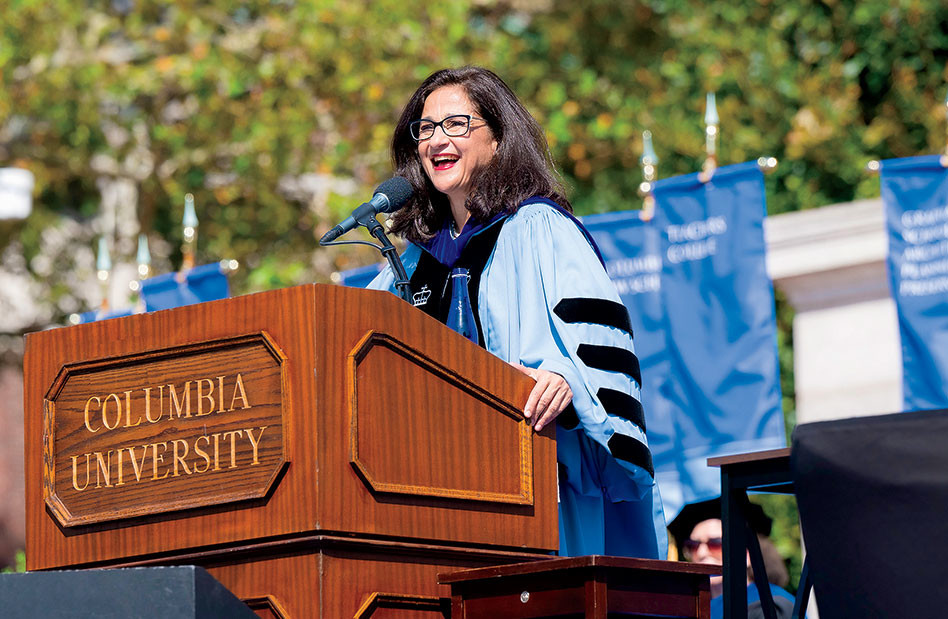In Inaugural Address, President Shafik Proposes a “New Social Contract” for Columbia
On October 4, Minouche Shafik was officially inaugurated as the twentieth president of Columbia University.
In her inaugural address, delivered to a large crowd in front of Low Library, Shafik reaffirmed Columbia’s commitment to academic excellence, public service, and diversity, while also inviting faculty, students, and alumni to join her in imagining how the University might evolve to serve humanity in new ways.
“Columbians have always been pioneers; we’ve always been ahead of the curve,” she said, citing the large numbers of influential scientists, artists, entrepreneurs, public officials, and activists who have attended or taught here. “Now we have the opportunity to be pioneers yet again. We can be pioneers in redefining, for a new era, what the role of a great university should be.”
Shafik then proposed that Columbia University pursue a “new social contract” with the world beyond its gates. She outlined three pillars of this new social contract: educating citizens and leaders; solving real-world problems; and strengthening local and global communities.
“The first job of universities is to educate citizens and leaders who are comfortable with rigorous debate,” Shafik said. “At a time of great divisions, the experience of reading and debating texts together creates the foundation for informed and enlightened citizens and leaders. Through their teaching, our faculty get to touch the future and shape the people who will determine it.”
The second part of the social contract between a great university and society, she asserted, is to “create the knowledge that will take humanity forward — whether it is finding solutions to global warming or cancer, exploring how new technologies affect us, or finding ways to preserve our social and cultural history. University research has probably done more to advance human progress than anything else.”
The third and last pillar of a great university’s social contract, she said, is its commitment to community. “To be an engaged citizen at Columbia is to be engaged globally and locally,” said Shafik. “We need to do more of this, and I am eager to find a way to make such local and global engagement core to who we are as a University.”
She concluded: “My vision of Columbia is of an institution that is a friend to our neighbors, an asset to this nation, and a beacon in this world. So let us forge a new social contract with society and with each other that will make us an exemplar of a great university in the twenty-first century.”



